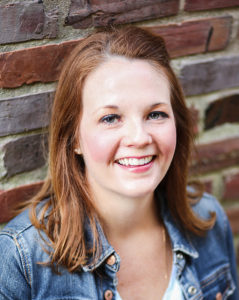By LISA LAFONTAINE BYNUM

Safety, security and a sense of belonging
A look back at Palmer Home, 125 years ago and now
Christine McClamroch Spain was 5 years old when she and her siblings came to Palmer Home for Children in 1955. Now a wife, mother and grandmother, three words — safety, security and belonging — have become interwoven into the fabric of Spain’s Palmer Home story.
“I could tell life was going to be different for me,” Spain recalls of her arrival. “It was like I was seeing color for the first time.”
From orphanage to home
The concept of providing a place of belonging to displaced children was the original motivation for establishing Palmer Home 125 years ago in Columbus, Mississippi.
A formal charter for the Palmer Orphanage was granted in 1895, and the organization officially opened on May 3, 1899, with a single dormitory on 20 acres. By August, the home had 20 boys and girls in its care. Within five years, that number doubled.
Current president and CEO Drake Bassett estimates that Palmer Home has cared for more than 10,000 children in some capacity over its 125-year history. While every child has left their mark, so have the caregivers who shaped the organization into the Christ-centered environment it is today.
Palmer’s third superintendent, William Frierson, was the first ordained minister to assume this position. Frierson and his wife quickly set about looking after not only the physical well-being of the children, but also their spiritual development. That legacy continues at Palmer Home today.
In the 1950s, superintendent J.O. “Papa Joe” Davis began transitioning away from dormitory living to the smaller, cottage-style family housing still utilized today. By the end of the 1970s, Palmer was no longer being referred to as an orphanage. It was a home.
Spain adds, “We were given every connection that the best parents would try to provide. When hula hoops came out, there were hula hoops all over campus. We had a good time, but we also had chores. The training was there, but there was also a place of belonging.”
Spain has had many opportunities to shine a light on Palmer Home. In 1970, she won the title of Miss Mississippi and openly shared her story during her reign.
“I felt representative of my childhood, of growing up in a children’s home, and to those children,” she explains. “Life has all kinds of opportunities. I had such a heart of gratitude for all those people that collectively took me in.”
Evolving to meet the need
Over the years, the scope of Palmer’s mission has expanded “because the needs of children are different than they were in 1920 or even 1970,” Bassett says.
“We have children coming out of very complicated situations — neglect, abuse, any number of different factors that existed 50 years ago, but (were) not as prevalent as today.”
Palmer now offers a variety of care settings to complement their residential model. The organization provides foster care through certified families. It works with expectant mothers in prison to provide childcare for newborns, and then helps reunite those mothers with their children after release. Palmer’s Transitional Program guides young adults ages 18 to 24 who would normally “age out” of foster care.
Palmer developed the Whole Child Initiative Model of Care, which began as an evaluation tool for onboarding new children but has since changed the entire approach by which Palmer Home provides care. By helping children work though trauma, Palmer equips them to thrive at home, at school and in the community.
“This is an environment where people understand the importance of trauma,” Bassett says. “We’ve brought together people who have skills and abilities to directly intervene in the lives of these children at the earliest age possible. The children then begin to cope, untangle the past, and eventually begin to overcome.”
Palmer Home for Children has been a beacon of light for 125 years and intends to embrace that role well into the future.
“Yes, many children have come through our doors, but many more lives have been affected because they came through our doors,” adds Bassett. “It’s a ripple effect that ultimately brings families together.”

Lisa LaFontaine Bynum is a freelance writer from Grenada. Her work has appeared in several publications in Mississippi. She is a graduate of Delta State University, where she received a BA in Marketing and her MBA. In her free time, she enjoys food writing and photography for her blog The Cooking Bride. Lisa lives in Brandon with her husband and two sons.

